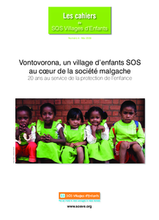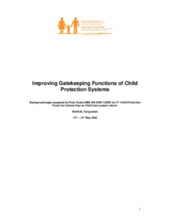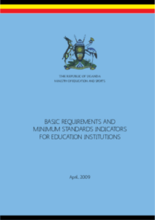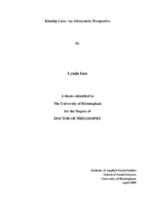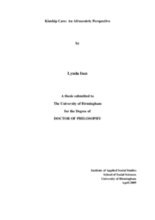Demographic Data
|
Sources: World Bank, UNDP, UNAIDS, DHS 2013 |
Displaying 13301 - 13310 of 14389
Explores particular vulnerabilities that arise for Roma children and families in regards to care as a result of social marginalization
A l’occasion du 20eme anniversaire de SOS Villages d’Enfants Madagascar, SOS Villages d’Enfants a choisi de consacrer ce cahier à une étude réalisée sur le village SOS de Vontovorona, première pierre de la présence de SOS Villages d’Enfants sur le sol malgache.
This background paper draws attention to the child protection reforms to be made to gatekeeping access to services. The paper draws attention to critical linkages to relevant legal, policy and procedural reforms and the reform of services to support children and families.
Examined the eight countries in which USAID supported significant child welfare reform programs: Armenia, Azerbaijan, Belarus, Bosnia-Herzegovina, Georgia, Romania, Russia, and Ukraine. The paper discusses population issues, the current system of child welfare, USAID-funded activities, lessons learned, and best practices.
This study aims to use media reports as a resource to collate existing information on abandoned babies and to draw conclusions to inform future response.
In 2001 the Republic of Uganda's Ministry of Education and Sports (MoES) issued the Basic Requirements and Minimum Standards Indicators for Education Institutions (BRMS) to schools and other relevant stakeholders to guide the organization and management of educational institutions. This BRMS has been reviewed by a multi-sectoral team comprising of members from the public and private sectors, development partners, international and national NGOs and other organizations.
This thesis explores the experiences and meanings that are attributed to kinship care by caregivers, young people of African descent, and social workers.
This thesis explores the experiences and meanings that are attributed to kinship care by caregivers, young people of African descent, and social workers.


